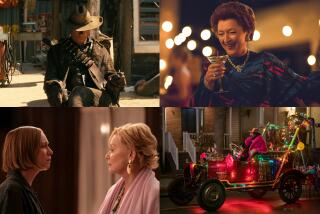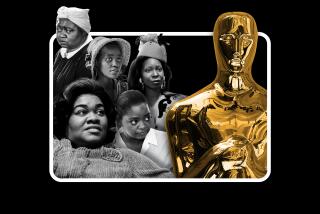Quiet, often subtle moments could be the key to winning the Oscar for these actors
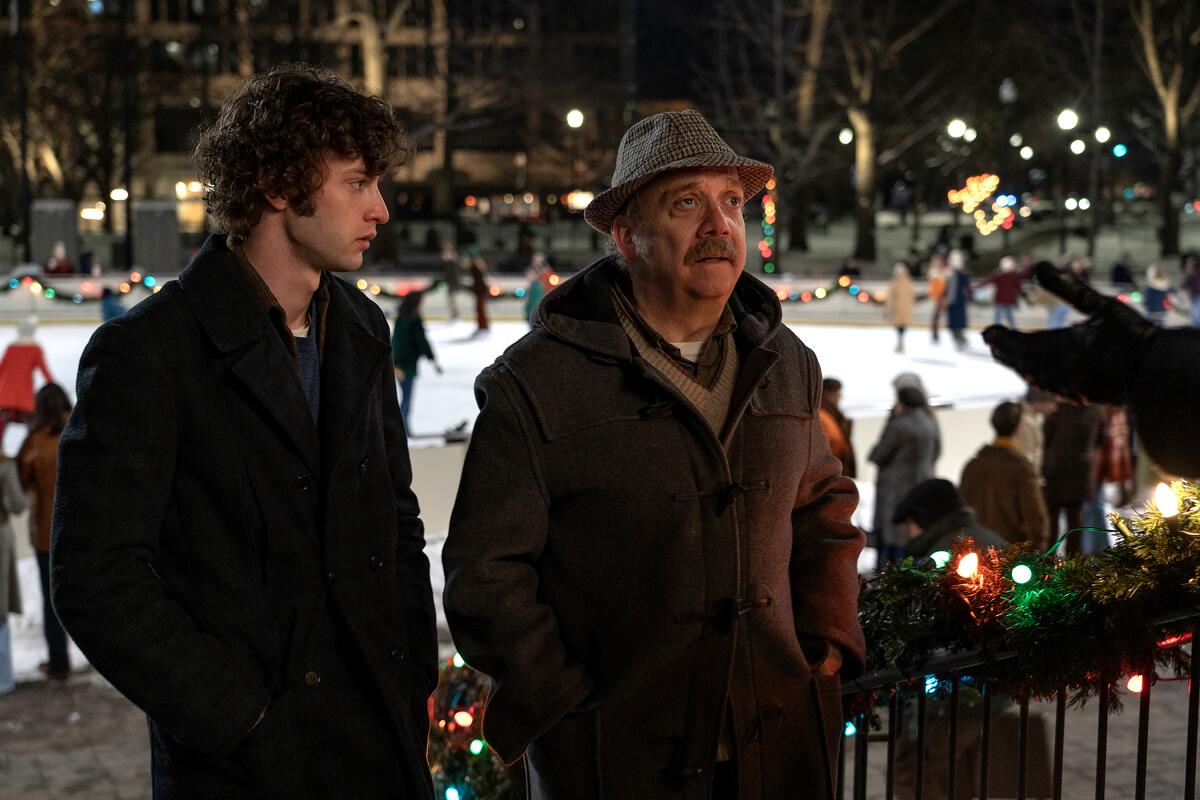
Boiling down an entire performance to one important, key scene for an actor is no easy task. Audiences might expect it’s a bombastic speech or a tearful moment of heartbreak or a rageful tantrum. But when The Envelope spoke to some of the producers and directors behind the scenes of the movies that this year generated the lead actor/lead actress Oscar nominations, it was about the small moments: a discussion over a picnic lunch; a 17-second held expression of bewilderment; the surprising reassurance of a teacher. Here a look at those key moments, two of which could lead to an Academy Award come March 10.
Paul Giamatti, ‘The Holdovers’
Set the scene: After Angus (Dominic Sessa) expresses his fears about turning into his institutionalized father, Mr. Hunham (Giamatti) soothes him and assures him he’ll be his own man.
Why it’s key: “Up until now, [Paul’s] been a very bitter man, but now he turns to this young boy and sees what he’s gone through and throws him a life jacket,” says producer Mark Johnson. “He’s basically saving this boy. It’s a moment of generosity, but not obvious, and you may not even know what you’ve just experienced — but in retrospect it’s so powerful and subtle.”
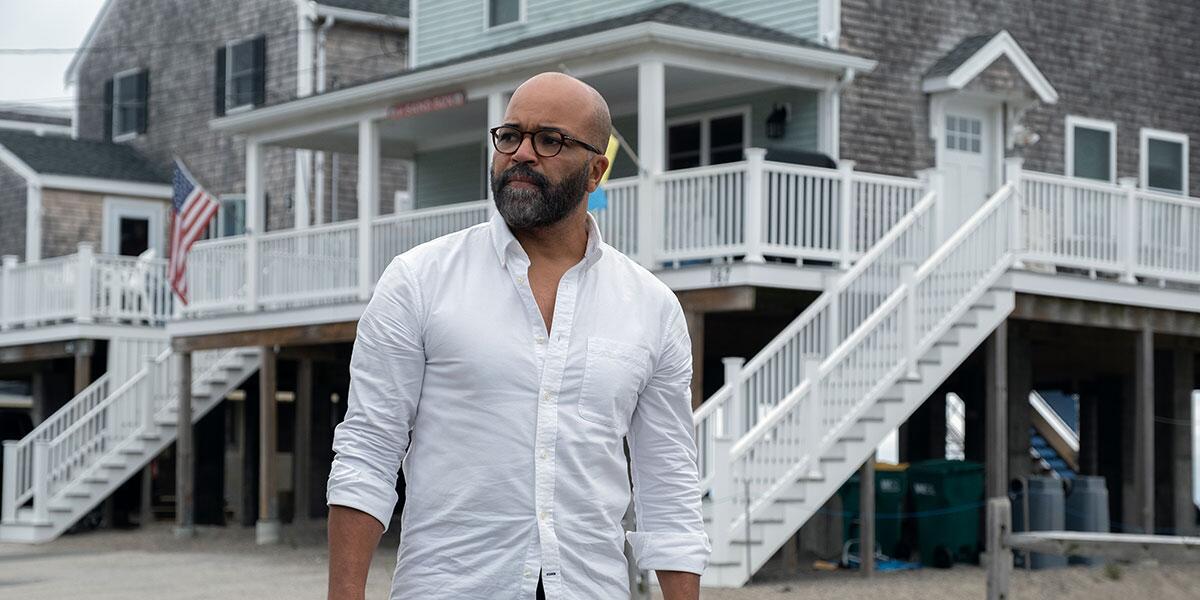
Jeffrey Wright, ‘American Fiction’
Set the scene: During the book awards judging, Monk (Wright) and Sintara (Issa Rae) have an ideological debate about what it means to be a Black artist.
Why it’s key: “Playing a lovable grump is hard; you can lose the audience if you play it too far,” says writer-director Cord Jefferson. “Monk is fighting everyone from the moment the movie starts, and in a less talented actor’s hands that wouldn’t work well. What buys back the audience’s favor is you see beneath the anger is pain. There’s not a lot of moving parts in that scene, it’s just a conversation, but it’s stripped down and you see the duality of Monk.”

Annette Bening, ‘Nyad’
Set the scene: After four failed attempts to make a record-setting swim between Cuba and Key West, Bonnie (Jodie Foster) refuses to undertake another — but Diana (Bening) won’t hear a “no.”
Why it’s key: “ ‘Nyad’s’ beating heart is the friendship between Bonnie and Diana,” write directors Elizabeth Chai Vaserhelyi and Jimmy Chin in an email. “If ‘Nyad’ is a platonic love story, this is the breakup scene. Annette’s performance is as astonishing as it is the truest extension of her willingness to play Diana Nyad, warts and all. In this scene … we see the incredible ability and fearlessness of our actors to play women in their full complexity.”
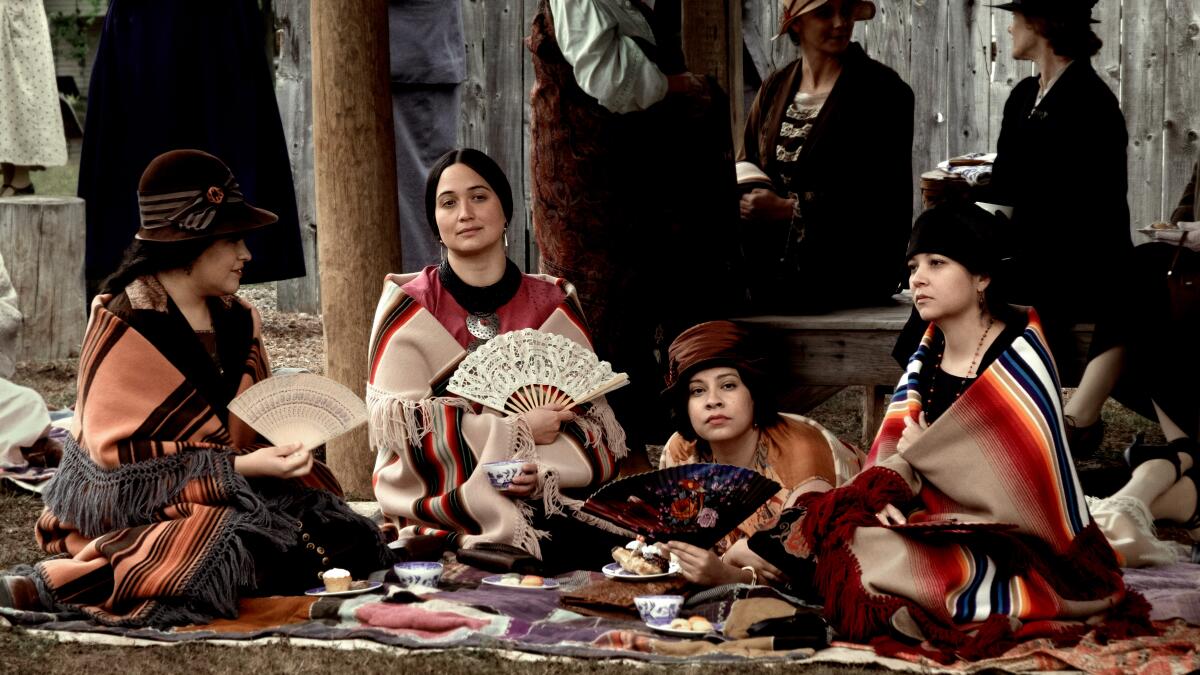
Lily Gladstone, ‘Killers of the Flower Moon’
Set the scene: During an after-church picnic, Mollie (Gladstone) and her sisters discuss Ernest’s (Leonardo DiCaprio) prospects as a husband for her.
Why it’s key: “In one scene you see the expression of Lily’s commitment as an artist to the Osage language and culture while also making character choices to show us Mollie truly loves Ernest — and it is a considered love — a choice to wed him that will lead to tragedy,” say producers Marianne Bower and Daniel Lupi in an email. “It may not be a big, showy, emotional scene, but it is played with little subtleties that make her performance overall so rich and powerful.”
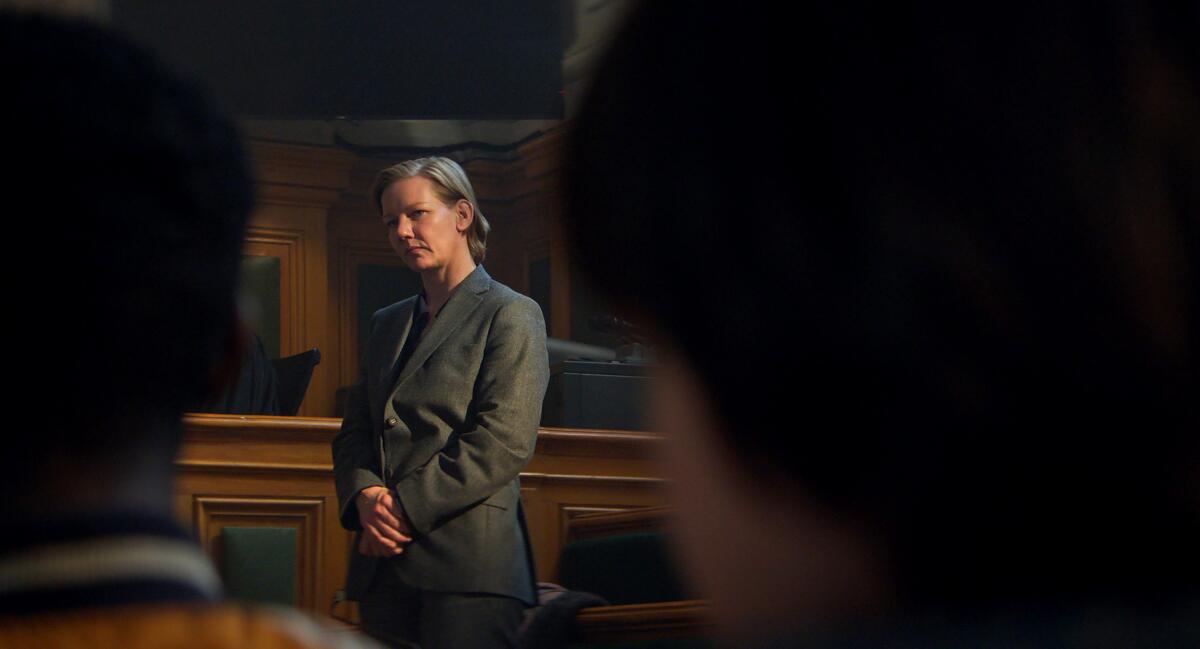
Sandra Hüller, ‘Anatomy of a Fall’
Set the scene: Sandra (Hüller) is being interviewed by her lawyer ahead of her courtroom appearance.
Why it’s key: “It’s the first scene where Sandra breaks out of the passivity that has characterized her until then,” says director Justine Triet (via translator Assia Turquier-Zauberman). “She’s being filmed and tells us about her meeting with [her husband] Samuel and the decay of that relationship. It’s a moment where we grasp her story and her skill as a storyteller. She’s skilled narratively, so that gives us many layers of information … even at the edge of her emotion she’s still crafting her mythology.”
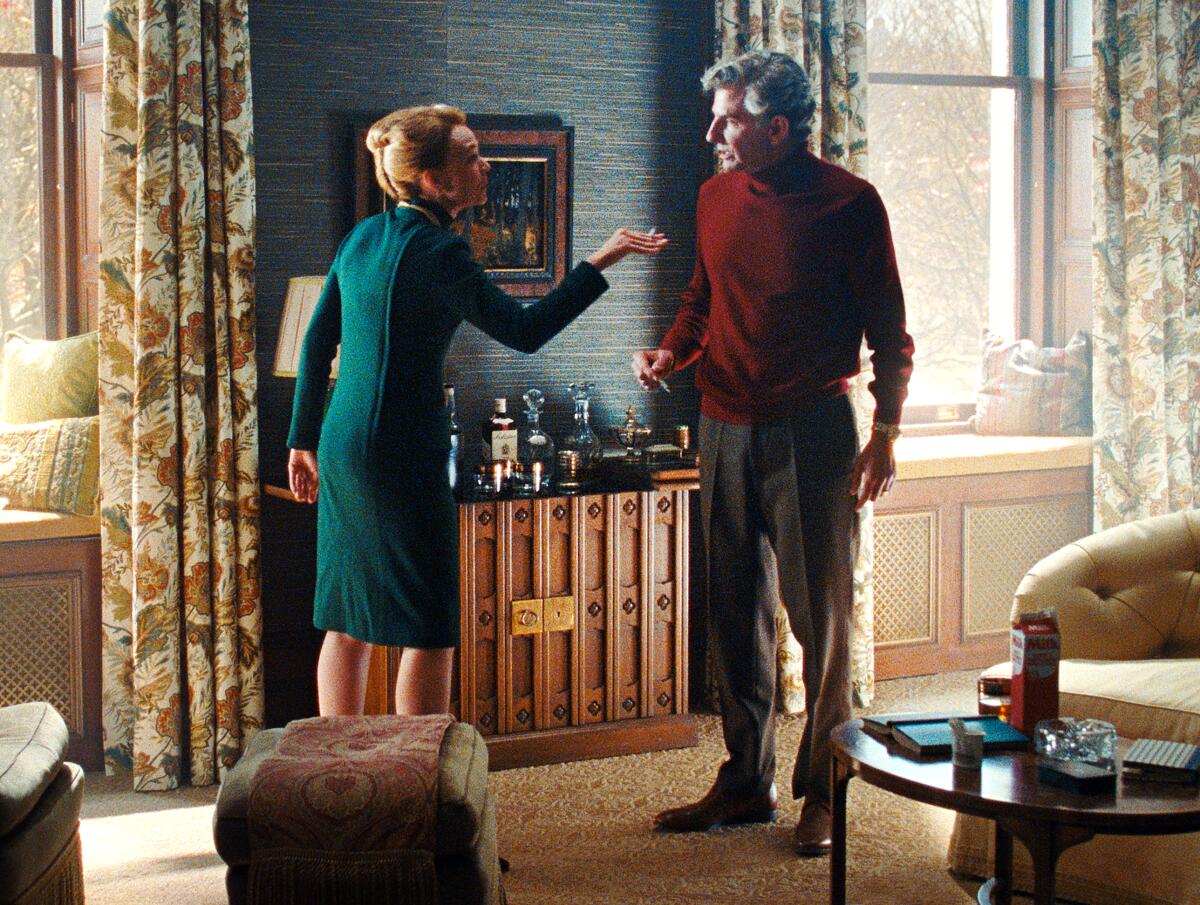
Carey Mulligan, ‘Maestro’
Set the scene: As the Bernstein family and friends gather for Thanksgiving, Felicia (Mulligan) and Lenny (Bradley Cooper) take stock of their partnership and marriage, with Felicia determined to make Lenny understand the depths of her sacrifice and the chaos that his lifestyle brings to their life together.
Why it’s key: “The scene is the denouement of several previous scenes that reveal that Lenny has failed to keep his promise to Felicia to keep his increasingly indiscreet affairs away from their life together as a family,” writes producer Kristie Macosko Krieger in an email. “This is the point in ‘Maestro’ where Felicia sticks a pin in the balloon of pretense and lets all of the anger out. Felicia is holding so much emotion from the audience up until this point. Carey’s ability to allow us to feel these complex, hidden emotions throughout the film only to unleash all of those feelings in full force is astonishing.”
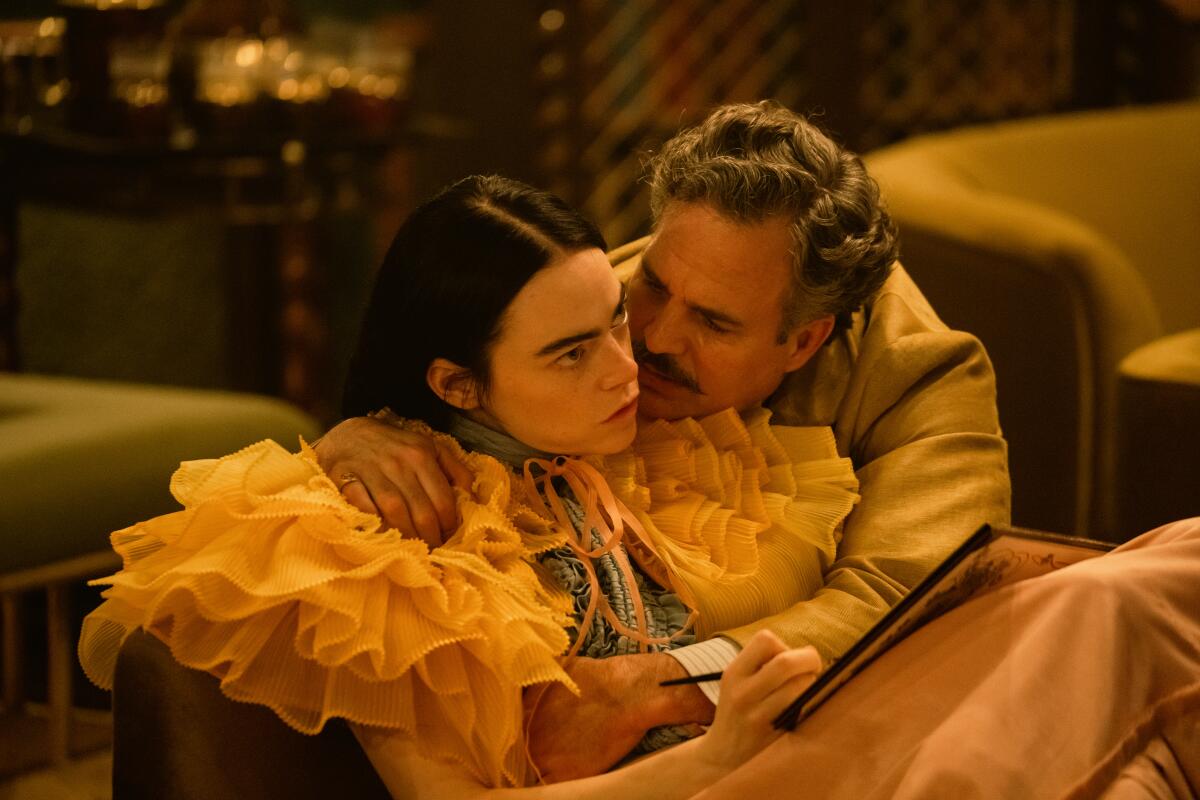
Emma Stone, ‘Poor Things’
Set the scene: On a ship heading to Athens, an exasperated and possessive Duncan (Mark Ruffalo) asks Bella (Stone) to marry him. Bella stares at him for 17 seconds, trying to absorb the request.
Why it’s key: “It’s an incredibly tense, intense and hilarious scene as we watch Bella’s mesmerizing and richly textured reaction as she moves from bewilderment through what feels like embarrassment or sympathy for Duncan and finally to a total dismissal of him,” writes producer Ed Guiney in an email. “Genius! And a key moment in [Bella’s] self-actualization.”
More to Read
From the Oscars to the Emmys.
Get the Envelope newsletter for exclusive awards season coverage, behind-the-scenes stories from the Envelope podcast and columnist Glenn Whipp’s must-read analysis.
You may occasionally receive promotional content from the Los Angeles Times.
